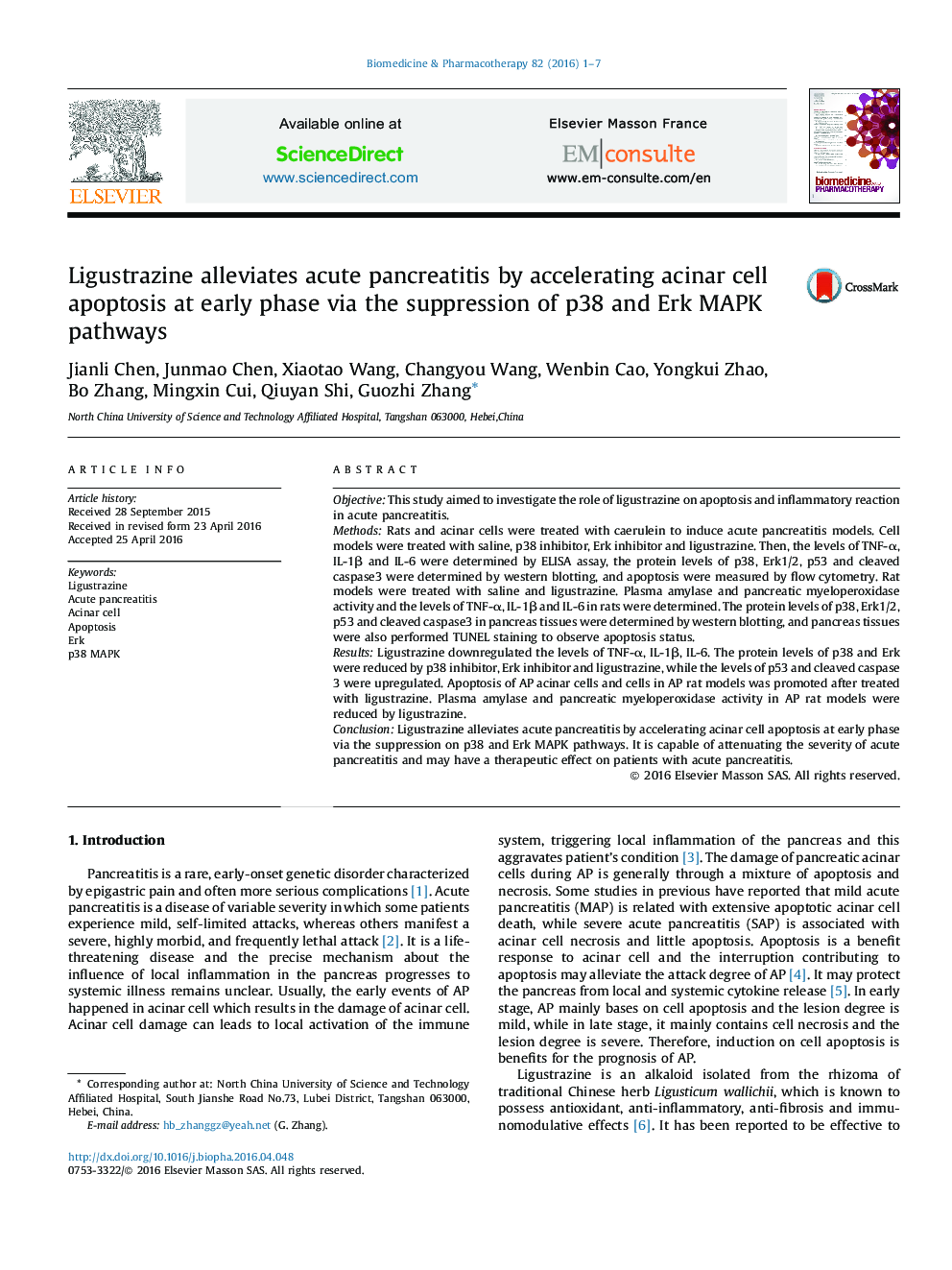| Article ID | Journal | Published Year | Pages | File Type |
|---|---|---|---|---|
| 2524541 | Biomedicine & Pharmacotherapy | 2016 | 7 Pages |
ObjectiveThis study aimed to investigate the role of ligustrazine on apoptosis and inflammatory reaction in acute pancreatitis.MethodsRats and acinar cells were treated with caerulein to induce acute pancreatitis models. Cell models were treated with saline, p38 inhibitor, Erk inhibitor and ligustrazine. Then, the levels of TNF-α, IL-1β and IL-6 were determined by ELISA assay, the protein levels of p38, Erk1/2, p53 and cleaved caspase3 were determined by western blotting, and apoptosis were measured by flow cytometry. Rat models were treated with saline and ligustrazine. Plasma amylase and pancreatic myeloperoxidase activity and the levels of TNF-α, IL-1β and IL-6 in rats were determined. The protein levels of p38, Erk1/2, p53 and cleaved caspase3 in pancreas tissues were determined by western blotting, and pancreas tissues were also performed TUNEL staining to observe apoptosis status.ResultsLigustrazine downregulated the levels of TNF-α, IL-1β, IL-6. The protein levels of p38 and Erk were reduced by p38 inhibitor, Erk inhibitor and ligustrazine, while the levels of p53 and cleaved caspase 3 were upregulated. Apoptosis of AP acinar cells and cells in AP rat models was promoted after treated with ligustrazine. Plasma amylase and pancreatic myeloperoxidase activity in AP rat models were reduced by ligustrazine.ConclusionLigustrazine alleviates acute pancreatitis by accelerating acinar cell apoptosis at early phase via the suppression on p38 and Erk MAPK pathways. It is capable of attenuating the severity of acute pancreatitis and may have a therapeutic effect on patients with acute pancreatitis.
